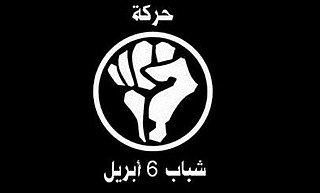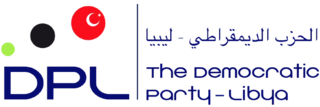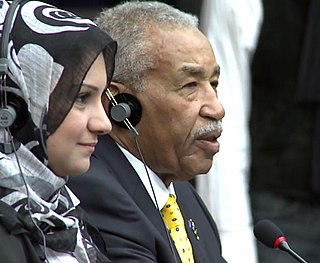
Libya, officially the State of Libya, is a country in the Maghreb region of North Africa. Libya borders the Mediterranean Sea to the north, Egypt to the east, Sudan to the southeast, Chad to the south, Niger to the southwest, Algeria to the west, and Tunisia to the northwest, as well as maritime borders with Greece, Italy and Malta to the north. Libya comprises three historical regions: Tripolitania, Fezzan, and Cyrenaica. With an area of almost 1.8 million km2 (700,000 sq mi), it is the fourth-largest country in Africa and the Arab world, and the 16th-largest in the world. Libya claims 32,000 square kilometers of southeastern Algeria, south of the Libyan town of Ghat. The country's official religion is Islam, with 96.6% of the Libyan population being Sunni Muslims. The official language of Libya is Arabic, with vernacular Libyan Arabic being spoken most widely. The majority of Libya's population is Arab. The largest city and capital, Tripoli, is located in northwestern Libya and contains over a million of Libya's seven million people.

The politics of Libya has been in an uncertain state since the collapse of the Libyan Arab Jamahiriya in 2011 and a recent civil war and various jihadists and tribal elements controlling parts of the country. On 10 March 2021, the interim Government of National Unity (GNU), unifying the Second Al-Thani Cabinet and the Government of National Accord was formed, only to face new opposition in Government of National Stability, until Libyan Political Dialogue Forum assured the ongoing ceasefire.

The Society of the Muslim Brothers, better known as the Muslim Brotherhood is a transnational Sunni Islamist organization founded in Egypt by Islamic scholar and schoolteacher Hassan al-Banna in 1928. Al-Banna's teachings spread far beyond Egypt, influencing today various Islamist movements from charitable organizations to political parties.

The national flag of Libya was originally introduced in 1951, following the creation of the Kingdom of Libya. It was designed by Omar Faiek Shennib and approved by King Idris Al Senussi who comprised the UN delegation representing the three regions of Cyrenaica, Fezzan, and Tripolitania at UN unification discussions.

The European People's Party (EPP) is a European political party with Christian-democratic, liberal-conservative, and conservative member parties. A transnational organisation, it is composed of other political parties. Founded by primarily Christian-democratic parties in 1976, it has since broadened its membership to include liberal-conservative parties and parties with other centre-right political perspectives. On 31 May 2022, the party elected as its President Manfred Weber, who was also EPP's Spitzenkandidat in 2019.

On 7 July 2012, the National Transitional Council, in power since the Libyan Civil War, supervised democratic elections for a 200-member General National Congress to replace the Council. The assembly was to choose a prime minister and organize parliamentary elections in 2013. A process to write a constitution was also to be determined. Unrest driven by armed militias, ethnic minority and radical groups undermined the process and the government for the years following the overthrowing of Muammar Gaddafi. While internal apathy towards democratic reforms slowed the process, external bodies such as the European Union were still pressing for the establishment of a national dialogue to build consensus for the drafting of a new constitution to take place before the end of 2014. Parliamentary elections were scheduled to be held on 25 June 2014 in a move aimed at stabilizing the country and quelling the unrest.

Sharif Sheikh Ahmed is a Somali politician who was the 7th President of Somalia from 2009 to 2012.

The April 6 Youth Movement is an Egyptian activist group established in Spring 2008 to support the workers in El-Mahalla El-Kubra, an industrial town, who were planning to strike on 6 April.
The international reactions to the Libyan Civil War were the responses to the series of protests and military confrontations occurring in Libya against the government of Libya and its de facto head of state Muammar Gaddafi.

The anti-Gaddafi forces, also known as the Libyan opposition or Libyan rebels, were Libyan groups that opposed and militarily defeated the government of Muammar Gaddafi during the First Libyan Civil War in 2011, killing him in the process. The Anti-Gaddafi forces were represented by the National Transitional Council and their National Liberation Army, which claimed to be the "only legitimate body representing the people of Libya and the Libyan state". These opposition forces included organized and armed militia groups, participants in the Libyan Civil War, Libyan diplomats who switched their allegiance from the Gaddafi-led government, and Libyan military units that switched sides to support the protesters.

The National Transitional Council (NTC) was a transitional government established in the 2011 Libyan civil war. The rebel forces overthrew the Libyan Arab Jamahiriya of Muammar Gaddafi. The NTC governed Libya for a period of ten months after the end of the war, holding elections to a General National Congress on 7 July 2012, and handing power to the newly elected assembly on 8 August.

Hamdeen Sabahi is an Egyptian politician and journalist. He is currently the leader of the Egyptian Popular Current and a co-leader of the National Salvation Front. An opposition activist during the Anwar Sadat and Hosni Mubarak eras, Sabahi was jailed 17 times during their presidencies for political dissidence. He was an immediate supporter and participant of the 2011 Egyptian revolution. Sabahi entered the 2012 Egyptian presidential race in which he finished third place with 21.5% of the vote trailing the second place candidate Ahmed Shafiq by a margin of 700,000 votes. In the 2014 presidential election he was one of just two candidates. He ran second with less than 4% of the vote. Abdel Fattah el-Sisi was declared the winner after attracting 22 million of the nearly 23 million votes cast. Sisi was sworn into office as President of Egypt on 8 June 2014.

The Democratic Party is a political party in Libya launched by the Libyan Freedom and Democracy Campaign on 14 July 2011 to represent the aspirations of the Libyan people in post-Gaddafi and post-National Transitional Council elections.

Parliamentary elections were held in Libya on 25 June 2014 for the House of Representatives. Whilst all candidates ran as independents, the elections saw nationalist and liberal factions win the majority of seats, with Islamist groups being reduced to only around 30 seats. Election turnout was very low at 18%.

Prince Ahmed Al-Zubair al-Senussi, also known as Zubeir Ahmed El-Sharif is a Libyan member of the Senussi house and a member of the National Transitional Council representing political prisoners.

The Constitutional Declaration is the current supreme law of Libya, introduced due to the overthrow of the Gaddafi government in the Libyan Civil War. It was finalised on 3 August 2011 by the National Transitional Council, and is intended to remain in effect until a permanent constitution is written and ratified in a referendum. The document was publicly announced at a press conference of 10 August by Abdul Hafiz Ghoga, Vice President and official spokesman of the NTC.
The international reactions to the killing of Muammar Gaddafi concern the responses of foreign governments and supranational organisations to the killing of former Libyan leader Muammar Gaddafi at the Battle of Sirte, the last major engagement of the 2011 Libyan civil war, on 20 October 2011.

Ali Muhammad al-Sallabi, or al-Salabi is a Muslim historian, religious scholar and Islamist politician from Libya. He was arrested by the Gaddafi regime, then left Libya and studied Islam in Saudi Arabia and Sudan during the 1990s. He then studied in Qatar under Yusuf al-Qaradawi and returned to Libya during the 2011 overthrow of Gaddafi and distributed weapons, money, and aid to Islamist groups in the country. His actions were criticized by members of the internationally recognized Libyan government under the National Transitional Council who he in turn criticized as being secular.

Bassma Kodmani was a Syrian academic who was spokesperson of the Syrian National Council. She was the executive director of the Arab Reform Initiative, a network of independent Arab research and policy institutes working to promote democracy in the Arab world.

Cyrenaica province is one of the three traditional Provinces of Libya. It was a formal province from 1934 until 1963, when it was subdivided into the Governorates of Libya. Its capital was the city of Benghazi. Between 1911 and 1934 it had been the separately governed colony of Italian Cyrenaica.











